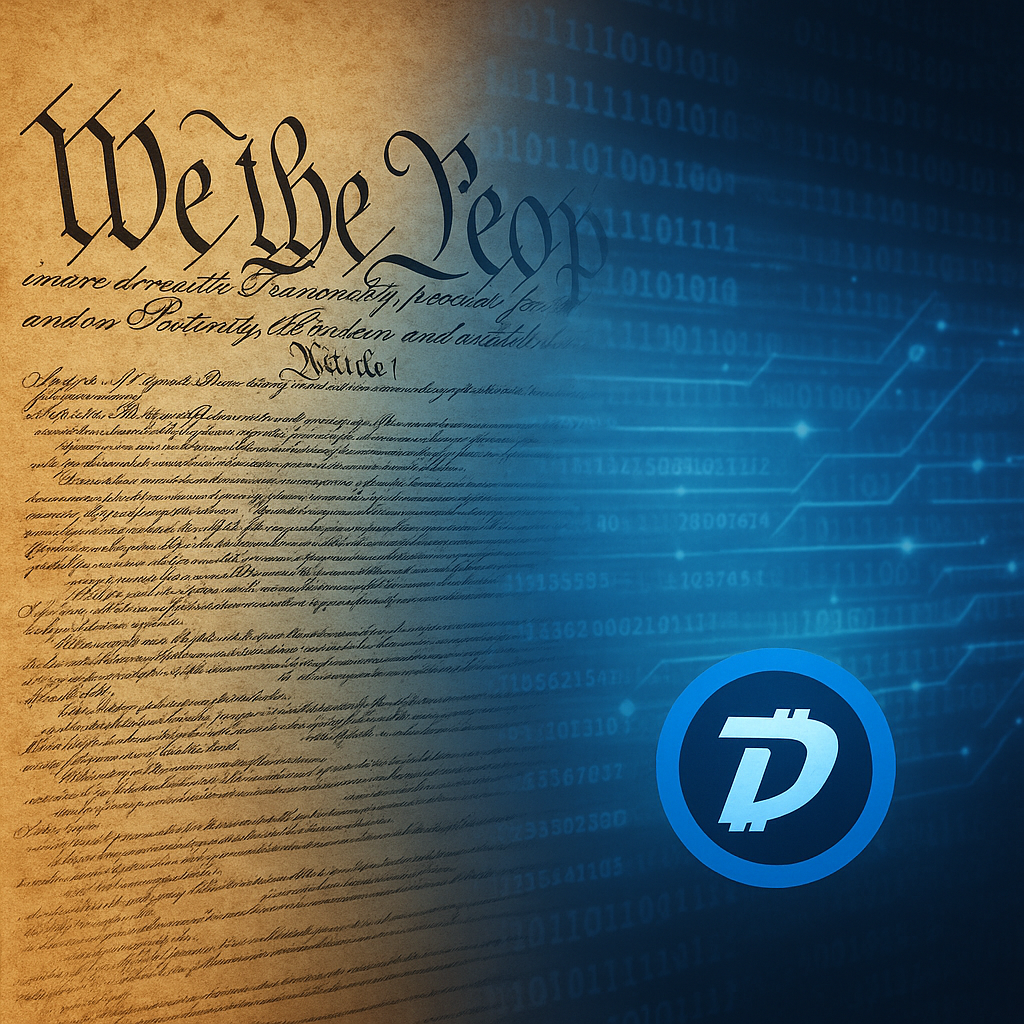In 1776, America declared independence from centralized control — not just politically, but philosophically. Just as DigiByte champions digital rights today, the Bill of Rights that followed became a covenant between people and power, ensuring that no single entity could silence, surveil, or seize what rightfully belonged to the individual.
Today, in the age of algorithms and digital empires, that covenant must evolve. And the foundation for it already exists — it’s called DigiByte, a beacon for digital rights.
1. A Constitution for the Digital Era
Our lives have moved online, yet our rights have not followed. Data is owned, not shared. Privacy is optional, not protected. Freedom of expression is filtered through centralized platforms that act as judge and jury.
What we need isn’t another app or protocol — we need a Bill of Digital Rights: a declaration that the individual, not the corporation, owns their identity, their voice, and their digital destiny.
DigiByte, with its decentralized, transparent, and community-driven foundation, is uniquely positioned to serve as the technological framework for that freedom. Its architecture isn’t just about transactions — it’s about trust, permanence, and permissionless participation, embodying the spirit of protecting digital rights.
2. The Five Layers of Freedom
Much like the Bill of Rights enumerated freedoms, DigiByte’s five-layer architecture encodes principles of sovereignty into the very fabric of its code:
- Application Layer – The right to build without permission. Smart contracts, decentralized identity, and secure data storage — all without gatekeepers.
- Digital Asset Layer – The right to own and transfer value freely. DigiByte ensures immutability and security across over 15 million blocks — one of the longest, most proven chains in the world.
- Public Ledger Layer – The right to transparency. Every transaction is verifiable and permanent, ensuring accountability without sacrificing autonomy.
- Consensus Layer – The right to consensus without coercion. With five mining algorithms, DigiByte prevents monopolies and encourages decentralized participation.
- Network Layer – The right to connectivity without censorship. Peer-to-peer infrastructure that ensures your voice — your data — can’t be silenced.
3. Why DigiByte Matters Now
In 2025, the world is awakening to the reality that “free” digital services have always come at the cost of privacy. AI systems are trained on stolen creativity. Centralized stablecoins shadow every transaction. And digital identity projects, while marketed as “secure,” often demand surrendering your sovereignty.
DigiByte offers an alternative — not as a reaction, but as a solution built ahead of its time. It plays a crucial role in safeguarding digital rights, aligning with the ideals of the American Revolution itself: No kings. No rulers. Just people, united by code.
4. The New Digital Amendments
If we were to draft a modern Bill of Digital Rights today, its amendments might read like this:
- The Right to Digital Privacy – No entity shall surveil without consent.
- The Right to Data Ownership – Your data is your property, not a platform’s asset.
- The Right to Censorship Resistance – Speech, ideas, and creativity shall not be algorithmically suppressed.
- The Right to Open Participation – Access to the network shall not be denied to any person.
- The Right to Transparency in Governance – Code changes and governance shall remain open and verifiable.
Each of these values already lives within DigiByte’s DNA — not as policy, but as protocol, embodying DigiByte digital rights.
5. A Vision Forward
The next decade will determine whether humanity becomes digitally sovereign or digitally enslaved. We can either rebuild the Internet as a decentralized democracy, or remain subjects under digital empires.
The DigiByte blockchain isn’t just a tool for currency — it’s the foundation for an entirely new social contract between individuals and information, reflecting the essence of DigiByte – Digital Rights.
Just as the Founding Fathers built a system designed to outlast them, DigiByte’s community continues to build something greater than any single developer, miner, or nation: a digital republic of free, verifiable, and incorruptible truth.
Conclusion
Every era has its revolution. Ours is digital.
And just as parchment and ink once carried the principles of freedom, so too can blockchain and code carry the next great declaration — a Bill of Digital Rights, written not by governments, but by the people, for the people, secured forever on DigiByte.
